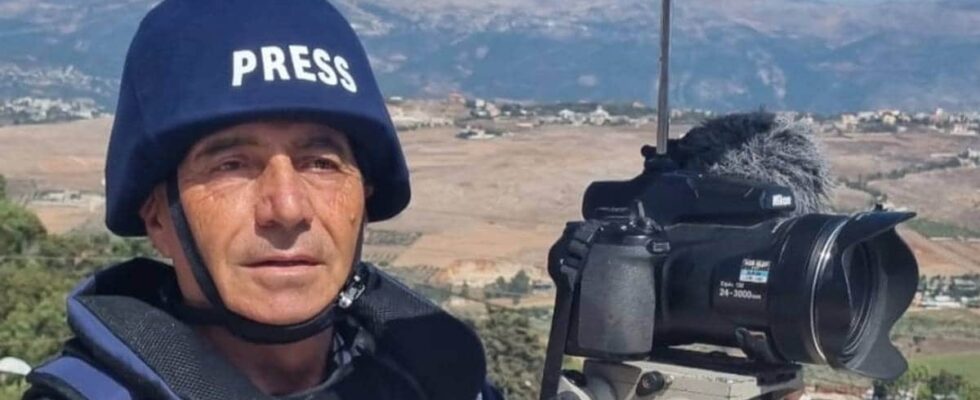War photographer Lotfallah Daher is no stranger to war or conflict. Until Monday, he lived in the village of Ebl el Saqi in southern Lebanon. Now he and his family have fled, after their village was hit by an Israeli air attack. – Five people were killed in the attack. A priest and his four daughters were also injured. The priest’s situation is critical, says Daher to news on Tuesday. He describes the situation in the village as calm until these attacks, and says there have not been any military operations there before. – We have not been part of the conflict. But yesterday I received messages that I had to leave the area, and that I would be in danger if we stayed. People were very scared. They will not die. There is great destruction in the village of Ebl el Saqi after Israeli airstrikes on Monday. Photo: Privat Getting in the car The family felt they had to leave, and thus leave everything they owned. They got into the car and headed north. It was not easy for them – or the other inhabitants of the village. – People have spent many years building their lives here. Then you run the risk of everything being lost in an instant. It is very sad. It’s not easy to just leave, says Daher, and adds: – You didn’t just leave valuables and property behind. You left a society and a community. Different this time Although he has covered conflicts for 40 years as a war photographer, it is different this time. – This time, journalists have also been affected. Several of our colleagues have been killed, which has caused concern and fear, says Daher. He says he has started to think more about consequences now that he has gotten older. – There are no journalists left in the area, because they are exposed to attacks. It seems that neither party wants to have a camera on site, which can show what is actually happening. The war photographer believes that Lebanon was not prepared for a war. Now he says the Lebanese are pessimistic about the future, after everything that has happened. – But I have to try to find hope, he says. A different people Jan Erik Brodahl is formerly head of security for the UN in East Lebanon. He has also noticed a change among the Lebanese. – Lebanese are usually so cheerful and pleasant, but not anymore. He depicts a land full of horror. – People are afraid that the situation will escalate because bombs are falling everywhere. There are neither people nor cars in the streets. People are anxious to go to the store. It is terribly sad, says the UN veteran. Jan Erik Brodahl is a former head of security for the UN in East Lebanon and has a good knowledge of the country. Photo: Privat He goes on to tell about people who slept on the streets. Syrian and Palestinian children who have neither family nor a roof over their heads. – Those who do not have a place to live try to break into empty houses in order to have a place to live. They have neither money nor food. The pharmacy starts to run out of medicines. The inhabitants are in the middle of a crisis situation and are desperate. – No reason for Israel to stop When news spoke to Brodahl, there were still several hours until Iran attacked Israel with several missiles. He just as well drew a gloomy picture of the reality on the ground. – As a former military man, I am terribly afraid that this is just a small test before Israel moves on, he says. – So this is just the beginning of something bigger? – Yes, I think so. If Hezbollah does not surrender, I see no reason why Israel should stop. Then they have got what they want, and have a reason to keep fighting to get ahead, says the UN veteran. Israel and Hezbollah have had daily skirmishes since the war in Gaza broke out on 7 October last year. It was Hezbollah that first attacked Israel in solidarity with the Palestinians. In the last two weeks, the situation has escalated sharply. Israel has moved large forces north and says that the war is now in a new phase. Israel has stated several times that the goal is to make northern Israel safe, so that the approximately 60,000 evacuated Israelis can move back to the border area. On the opposite side of the border, the number of internally displaced persons increases with each passing day. The UN estimates that the attacks have driven more than 300,000 Lebanese people to flee so far, while the Lebanese authorities have estimated that up to 500,000 people have had to flee. On Tuesday, Israel asked residents of more than 20 villages in southern Lebanon to evacuate. Published 01.10.2024, at 21.47 Updated 01.10.2024, at 21.48
ttn-69
War photographer had to flee: – People were very scared. They will not die

